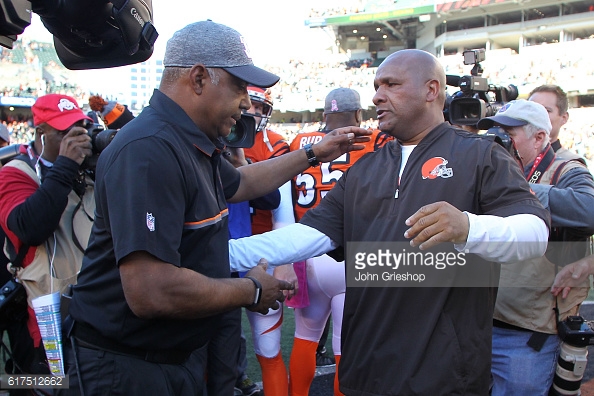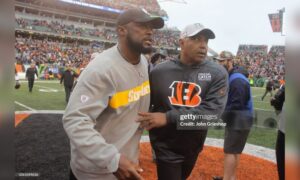Earlier this week, the NFL tabled a proposal that would see teams rewarded with slight improvements for their draft slots in the third round if they were to hire a minority (or female) to the roles of head coach or general manager. Roger Goodell has also vowed that this proposal will be revisited and that there is a lot of support for it.
It’s very likely that, at some point this season, a proposal will be past that, in some form or fashion, tangibly incentivizes the hiring of minority or female candidates to power positions, though it remains to be seen what exactly it will look like. There has been some suggestion that it will shift from reward (improve draft picks for hiring) to compensation (draft picks for losing a minority or female in a power position).
It cannot be ignored, however, the number of significant voices who have at least expressed concern or due caution about the unintended consequences of such a proposal. I have previously talked about Eric Bieniemy, one of only two minority offensive coordinators, and Tony Dungy, the only black head coach in the Hall of Fame voicing some pushback against the idea.
Now, another very prominent former head coach has come out and said what many have been thinking. Longtime Cincinnati Bengals head coach Marvin Lewis called the proposal “definitely offensive”, according to Mike Preston of The Baltimore Sun. He even went so far as to liken it to Jim Crow laws.
He said that draft picks are “like gold”, and that he felt the proposal did not make a lot of sense, although it’s important to note that hiring a minority head coach would have only improved a team’s third-round draft pick by six selections (a general manager was worth a 10-selection improvement). “As a head coach, no one wants to be hired or put into that position”.
Still, some of the moves that the league did make have been met by consensus support, such as the removal of roadblocks for mobility among position coaches. Teams can no longer prevent position coaches from interviewing for coordinator positions with other teams. The majority of head coach hires had previously served in coordinator roles, and there are few minorities in these positions.
“We had come a long way as far as assistant coaches, but we never made any inroads in management”, Lewis said. “This will be a plus requiring more than one minority to be interviewed because it will cause them to take a deeper dive. This will allow more minorities more opportunities”.
It’s abundantly clear that the league wants to do more to facilitate and encourage the diversification of leadership positions within organizations. It’s also clear that they are not entirely sure what that approach needs to be.








